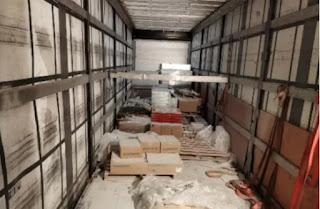Eight years ago, the Winter Olympics were held in Sochi--which has a climate more like that of the coastal Carolinas or Georgia than what one might associate with Russia. And this year's games are in Beijing, which receives little, if any, snow in any given year.
You almost have to wonder whether or not some winter sports will continue, what with climate change. I mean, if glaciers are melting in polar regions and the world's highest mountain ranges, how long will folks in places l wonder how long people in the more temperate regions will be able to enjoy skiing, skating, ice fishing and the like.
Some folks in Wisconsin say as much. They worry that shorter, warmer winters could result in less snow and thinner ice covers on the area's lakes. But they also seem intent on enjoying as much as they can for as long as they can, and adapting wherever necessary.
Case in point: Bob Dohr and Keith Uhlig, participants in "Bike Across 'Bago," an "informal, mostly-annual" event organized through Fox Cities Cycling Association. Actually, as Uhlig writes, "organized isn't quite the right word." On its Facebook page, the FCCA tells cyclists that the safest route across the lake has been scouted and marked. (Ice on any lake is never completely safe. But the folks who mark the route ensure that it's as safe as it can be.)
 |
| Photo by Bob Dohr, for USA Today Network-Wisconsin |
So what is it like? Keith writes that the scene on Lake Winnebago was "otherworldly." He "couldn't tell where the ice ended and the sky began." It warps your perspective because "there is no color out there." But "like an excellent black and white movie, the grays take on a beautiful nuance of their own, and you begin to revel in that weird desolation."
From what he says, it seems that slipping and falling is an all-but-inevitable part of the ride. But there is the inevitable "feeling of victory" when "the dark line of a distant shore appears."
I've never biked on ice, but I hope that, for their sake (and, perhaps, mine--some day!) that the winter doesn't completely disappear!

